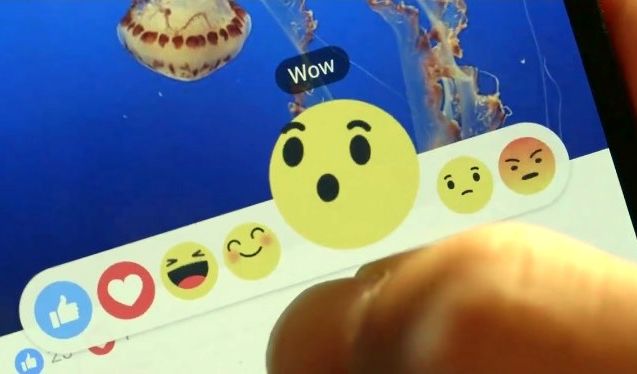Facebook lansează Reactions: Mai mult decât un „Like”, mai puțin decât un „Dislike”

Opțiunea este disponibilă pentru teste pentru Spania și Irlanda, urmând să fie implementată gradual de săptămâna viitoare și în restul țărilor. Pentru a transmite una dintre reacții, utilizatorul trebuie să țină apăsat butonul de „Like”, gest care va deschide opțiunile extinse.
Noile reacții vor fi disponibile doar pentru a interacționa cu ceea ce s-a postat, nu și cu comentariile asociate postării.
Today we're launching a test of Reactions — a more expressive Like button. The Like button has been a part of Facebook for a long time. Billions of Likes are made every day, and Liking things is a simple way to express yourself.For many years though, people have asked us to add a "dislike" button. Not every moment is a good moment, and sometimes you just want a way to express empathy. These are important moments where you need the power to share more than ever, and a Like might not be the best way to express yourself.At a recent Townhall Q&A, I shared with our community that we've spent a lot of time thinking about the best way to give you better options for expressing yourself, while keeping the experience simple and respectful. Today we're starting to test this.Reactions gives you new ways to express love, awe, humor and sadness. It's not a dislike button, but it does give you the power to easily express sorrow and empathy — in addition to delight and warmth. You’ll be able to express these reactions by long pressing or hovering over the Like button. We’re starting to test Reactions in Ireland and Spain and will learn from this before we bring the experience to everyone. We hope you like this – or can better express how you’re feeling!
Posted by Mark Zuckerberg on Thursday, October 8, 2015
Data lansării globale a noii opțiuni nu a fost anunțată, dat fiind că în faza-pilot se analizează modul în care sunt utilizate Reacțiile și modificările ce pot fi aduse.
În continuare, nu s-a luat în discuție crearea butonului „Dislike”, o opțiune care ar aduce, cel mai probabil, multe prejudicii companiilor care și-au creat pagini pe rețeaua de socializare.

